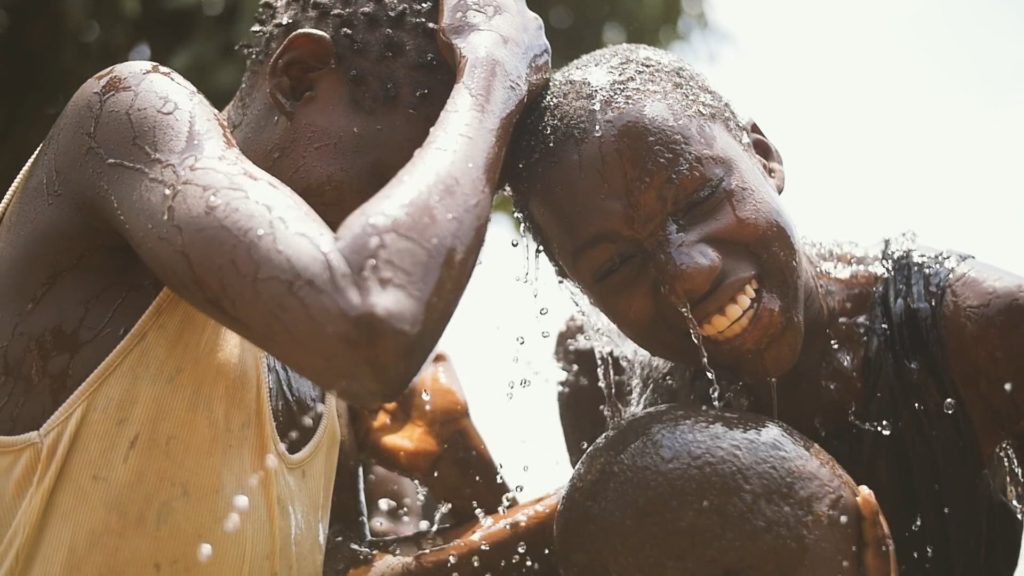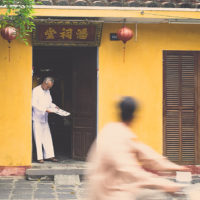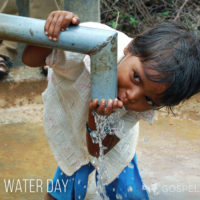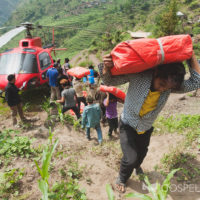Last year’s “Day Zero” scare, when Cape Town, South Africa’s taps nearly ran dry, captured the world’s attention and spurred conversations about the global scarcity of water. Now, even major cities like London are facing impending water shortages. For the first time, more people are beginning to consider what it might be like to live in a world where getting clean water isn’t as easy as turning on a faucet.
Unfortunately, too many families already know what that is like because they’ve never had access to clean water … ever.

Not long ago, I once stood on a hillside in Africa watching young women carrying water on their backs. I only watched part of their journey and can simply imagine how much further they had to walk.
As I’ve traveled the world, I’ve met many strong women and young girls like this, and I call them “water warriors.” These mothers take care of their home and children, plus they often spend hours a day collecting water for their families. And many are the main breadwinners for their household.
Some wake up at 3 a.m. every day to make sure they can make the long trek to the nearest stream and be back before their children wake up!
Today, on World Water Day, we should celebrate the strength and resilience of these women who, against momentous obstacles, would do anything to give their child a glass of fresh, pure water. And we should do everything in our power to help them.
Because the sad truth is, even after a woman walks hours to collect water, the heavy jerrycans she lugs back home are often filled with bacteria. And dirty water can completely breakdown a woman’s strength, safety, and her future.
Water impacts a woman’s physical strength:
In order to collect water in a country like Uganda or Guatemala, women have to be physically strong. A full, five-gallon jerrycan of water weighs around 40 pounds (18 kilograms), which is essentially like carrying a kindergartener for miles. And women with large families or crops to irrigate often have to carry even more.
This may be an easy task for a woman who is properly hydrated, doesn’t have any health issues, and is in her early 20s … but that’s not the case for the majority of women in impoverished countries. They’re dehydrated and malnourished. Some are elderly and have to walk miles on rough terrain.
The official World Water Day website by the U.N. states that “Whoever you are, wherever you are, water is your human right.” It shouldn’t be this challenging for a woman to collect something that’s considered a basic human right.
Water impacts a woman’s safety:
Lugging 40 pounds (18 kilograms) of water not only strains a woman’s health, but it also slows her down, making her vulnerable to attackers as she travels to and from a stream or river.
Women are constantly at risk of being raped, robbed, or abused while they’re journeying for water. In some areas, women who have to walk through rugged wildernesses are in danger of being attacked by wild animals. Not to mention, gathering water from a river is unsafe.
Lilian, a mother from Zambia, told our partner how collecting water always terrified her. Her heart beat faster whenever she thought of trying to stay upright in the rushing river, her feet slipping on the wet rocks and the current pulling hard at her legs.
But she had no choice — without the water she gathered her kids would become dehydrated and sick from the lack of bathing. So, every day she risked her life in the swirling waters.
Water impacts a woman’s future:
It’s clear that dirty water can put a woman’s physical safety in jeopardy. But it can also dismantle her future. Every moment a woman spends collecting water is one she’s not earning an income or learning a job skill.
According to UNICEF, women and girls worldwide spend an average of 200 million hours collecting water every day — that’s over 22,800 years!
Imagine if every hour a woman wastes walking for water, she was learning a trade instead?
I’ve seen the faces of women who have learned a trade and are finally able to pay for their children to go to school — an opportunity these women never had. Clean water is a gift that keeps on giving for generations!
That’s why World Help has been building clean water wells around the world for years, and why this cause is so important to me personally.
During one unforgettable trip, I had the opportunity to stand next to a well that my family was able to provide. On that day, water became more than a cause … more than an idea … more than a need in some far off place around the world. It was real. And the women and children who would benefit from this new clean water … well, they were very real too and running all around me.
It hit me then that this water will bathe them, clean them, and feed them. This water will truly give them life.
When you give a woman clean water, you’re empowering her. And if you empower a woman, you’re changing a community. And when you change communities, it’s the beginning of changing the world.
Noel Yeatts is an active advocate for social justice and humanitarian needs around the world. With over 20 years of experience in humanitarian work, Noel is an author, speaker, and the President of World Help, an international, Christian humanitarian organization serving the physical and spiritual needs of impoverished communities around the world. Noel regularly takes the stage for speaking engagements and advocacy events around the country and has been widely recognized for her groundbreaking book, “Awake: Doing a World of Good One Person at a Time.” Follow her on Instagram (@NoelYeatts) and on Twitter (@NoelYeatts). To learn more about World Help visit www.WorldHelp.net. For speaking engagements, visit www.NoelYeatts.com. To read more of her reports — Click Here Now.
To read more news on the global clean water crisis on Missions Box, go here.




